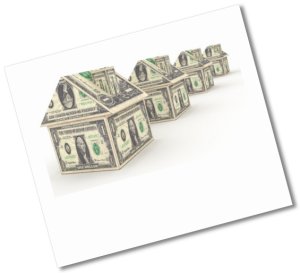
When selling your home, the goal is to sell it quickly for the highest price while investing as little as possible in renovations. With a limited budget and a little effort, you can greatly increase your home's appeal by focusing on what prospective buyers can see on their first visit. The experts at BuyOwner.com offer the following recommendations for preparing a house for sale and staging it for showings.
Tip #1: Refresh the exteriorFirst impressions count when it comes to selling a home. Most buyers won’t even leave their car if they don’t find the exterior appealing. The best ways to improve your home’s exterior include:
-Repairing and/or replacing trims, shutters, gutters, shingles, mailboxes, window screens, walkways and the driveway.
-Painting siding, trim and shutters and lamp and mailbox posts.
-Pressure washing vinyl siding, roofs, walkways and the driveway.
-Washing windows.
Tip #2: Spruce up the lawn and landscapeHome buyers associate the condition of your lawn and landscaping with the condition of your home’s interior. By improving the outside, you affect buyers’ impression of the entire property. The best ways to enhance the yard include:
-Mowing and edging the lawn.
-Seeding, fertilizing and weeding the lawn.
-Keeping up with regular lawn maintenance by frequent watering.
-Trimming and/or removing overgrown trees, shrubs and hedges.
-Weeding and mulching plant beds.
-Planting colorful seasonal flowers in existing plant beds.
-Removing trash, especially along fences and underneath hedges.
-Sweeping and weeding the street curb along your property.
Tip #3: Create an inviting entranceThe front door to your home should invite buyers to enter. The best ways to improve your entry include:
-Painting the front door in a glossy, cheerful color that complements the exterior.
-Cleaning, polishing and/or replacing the door knocker, locks and handles.
-Repairing and/or replacing the screen door, the doorbell, porch lights and house numbers.
-Placing a new welcome mat and a group of seasonal potted plants and flowers by the entry.
Tip #4: Reduce clutter and furnitureA buyer cannot envision living in your home without seeing it. A home filled with clutter or even too much furniture distracts buyers from seeing how they can utilize the space your home offers. If you have limited storage space, you may want to consider renting a temporary storage unit to place items you wish to keep. The best ways to declutter your home include:
-Holding a garage sale to prepare for your move, getting rid of unnecessary items.
-Removing clutter such as books, magazines, toys, tools, supplies and unused items from counter tops, open shelves, storage closets, the garage and basements.
-Storing out-of-season clothing and shoes out of sight to make bedroom closets seem roomier.
-Removing any visibly damaged furniture.
-Organizing bookshelves, closets, cabinets and pantries. Buyers will inspect everything.
-Putting away your personal photographs, unless they showcase the home. Let buyers see themselves in your home.
-De-personalize rooms as much as you can.
Tip #5: Clean, clean, cleanThe cleanliness of your home also influences a buyer's perception of its condition. The appearance of the kitchen and bathrooms will play a considerable role in a buyer's decision process, so pay particular attention to these areas. The best ways to improve these areas include:
-Cleaning windows, fixtures, hardware, ceiling fans, vent covers and appliances.
-Cleaning carpets, area rugs and draperies.
-Cleaning inside the refrigerator, the stove and all cabinets.
-Removing stains from carpets, floors, counters, sinks, baths, tile, walls and grout.
-Eliminating house odors, especially if you have pets.
-Considering air fresheners or potpourri.
Tip #6: Make minor repairsThe small stuff does count, especially with first-time home buyers. Without dismissing the importance of repairing major items such as a leaky roof or plumbing, you do not need to spend money on replacing these items. Instead, focus on the minor repairs that will make your home visually appealing. The best ways to improve your home include:
-Repairing ceilings and wall cracks.
-Repairing faucets, banisters, handrails, cabinets, drawers, doors, floors and tile.
-Caulking and grouting tubs, showers, sinks and tile.
-Adding fresh paint to ceilings, walls, trim, doors and cabinets.
-Tightening door handles, drawer pulls, light switches and electrical plates.
-Lubricating door hinges and locks.
Tip #7: Showcase the kitchenThe heart of any home is the kitchen. If you are going to spend any money on renovations, this is the one area where you will see the greatest return. Even with a modest budget, focusing on a few key areas can make a great difference in getting the asking price for your property. The best ways to showcase the kitchen include:
-Replacing cabinet doors and hardware.
-Installing under-cabinet lighting.
-Replacing light fixtures.
-Replacing outdated shelving with pantry and cabinet organizers to maximize space.
-Baking cookies or cupcakes for a showing, to create a homey smell.
Tip #8: Stage furnitureFurniture placement can enhance the space of your home while giving buyers an idea of how to best utilize the space with their own belongings. Take some time to rethink how different areas in your house could be used. Some ideas to think about include:
-Moving couches and chairs away from walls in your sitting and family rooms to create cozy conversational groups.
-Creating a reading corner in the master bedroom.
-Clearing an empty room to set up a reading space.
-Turning an awkward space into a home office.
-Setting the dining room table with your best china.
-Set wine glasses in front of the fireplace or next to a Jacuzzi tub.
Tip #9: Light up the houseCreate a sense of openness and cheerfulness in your home through its lighting. To improve the lighting try:
-Opening shades and drapes to let the sunshine warm and brighten rooms.
-Installing brighter light bulbs in rooms that tend to be dark.
-Adding additional lamps for ambient lighting.
-Turning on all the lights for a showing.
Tip #10: Add fresh touchesYou can easily add color and style to your home by adding fresh touches throughout. Some ideas to consider include:
-Placing fresh floral arrangements in the entry and master bedroom.
-Placing bowls of bright-colored fruit in the family room and the kitchen.
-Filling an empty corner with a potted leafy plant.
-Setting new hand soap in the bathrooms.
-Displaying fresh towels near sinks.
 With all the deals going on we didn't want you to miss out on local home builders & their Black Friday Deals. It is usually big retailers offering flat-screen TV's and high-tech appliances that consumers covet. But this year local new home builders are getting in on the Black Friday action!
With all the deals going on we didn't want you to miss out on local home builders & their Black Friday Deals. It is usually big retailers offering flat-screen TV's and high-tech appliances that consumers covet. But this year local new home builders are getting in on the Black Friday action!

















